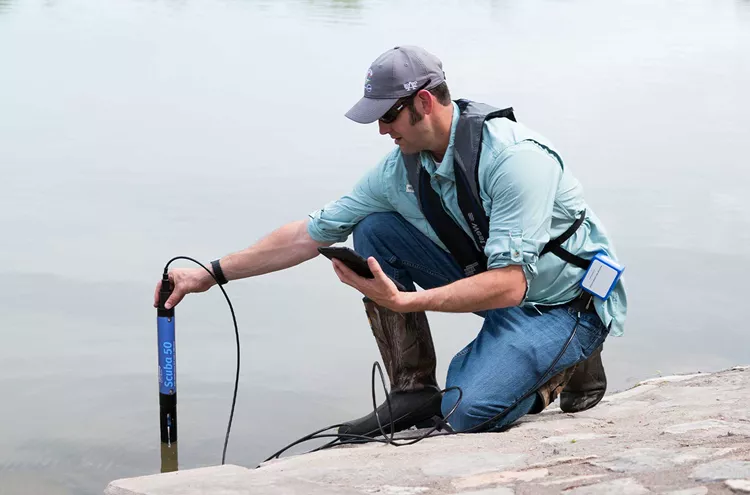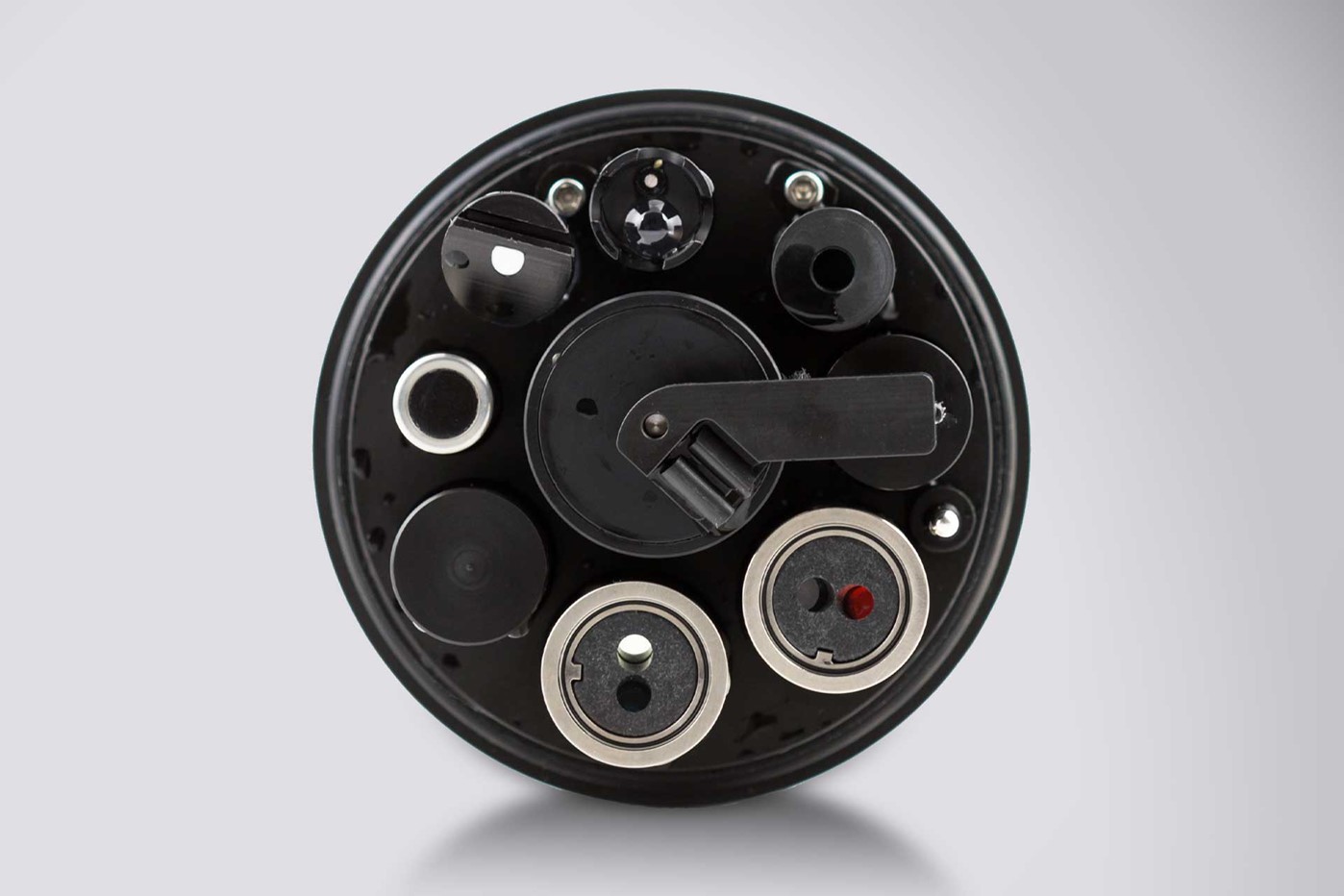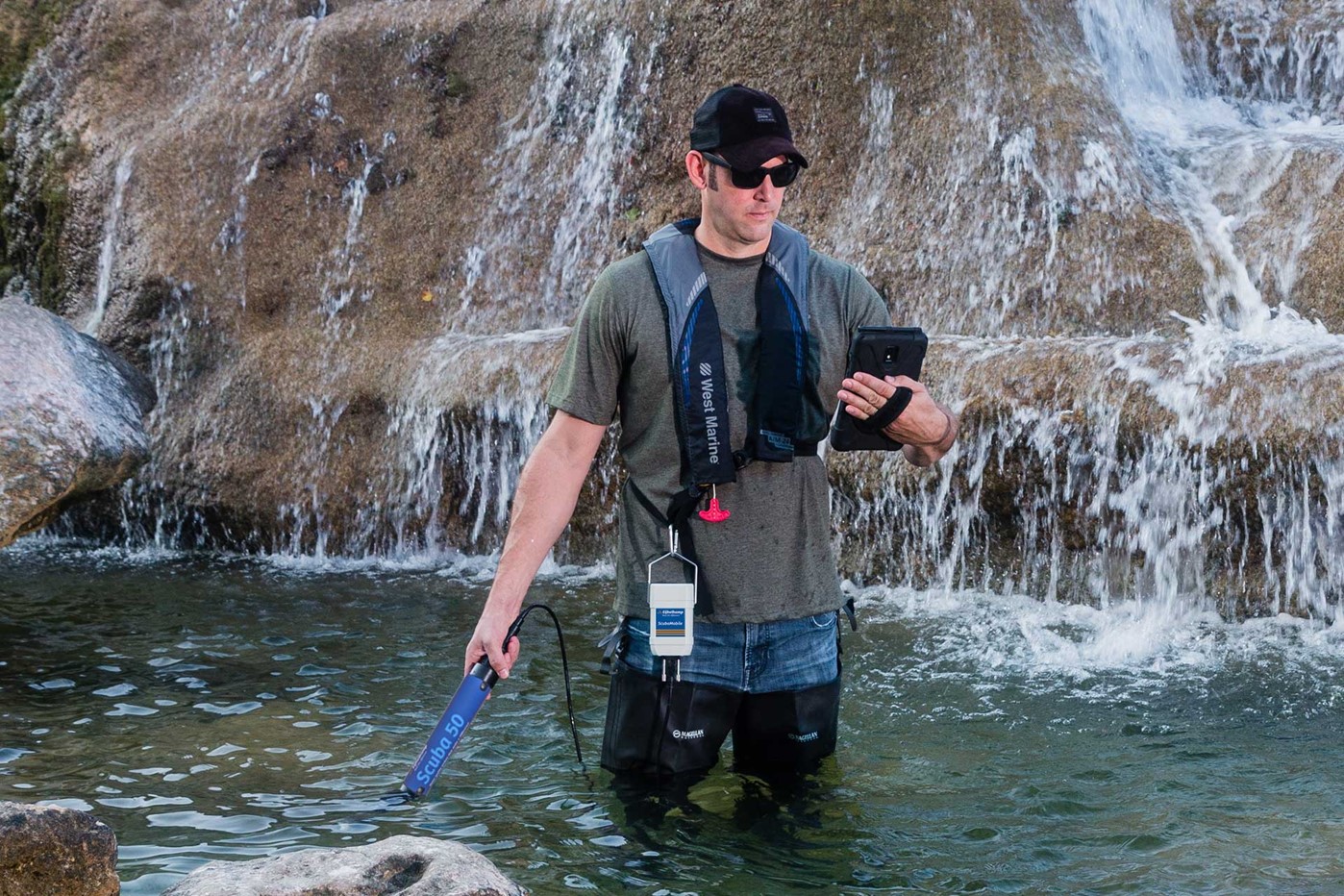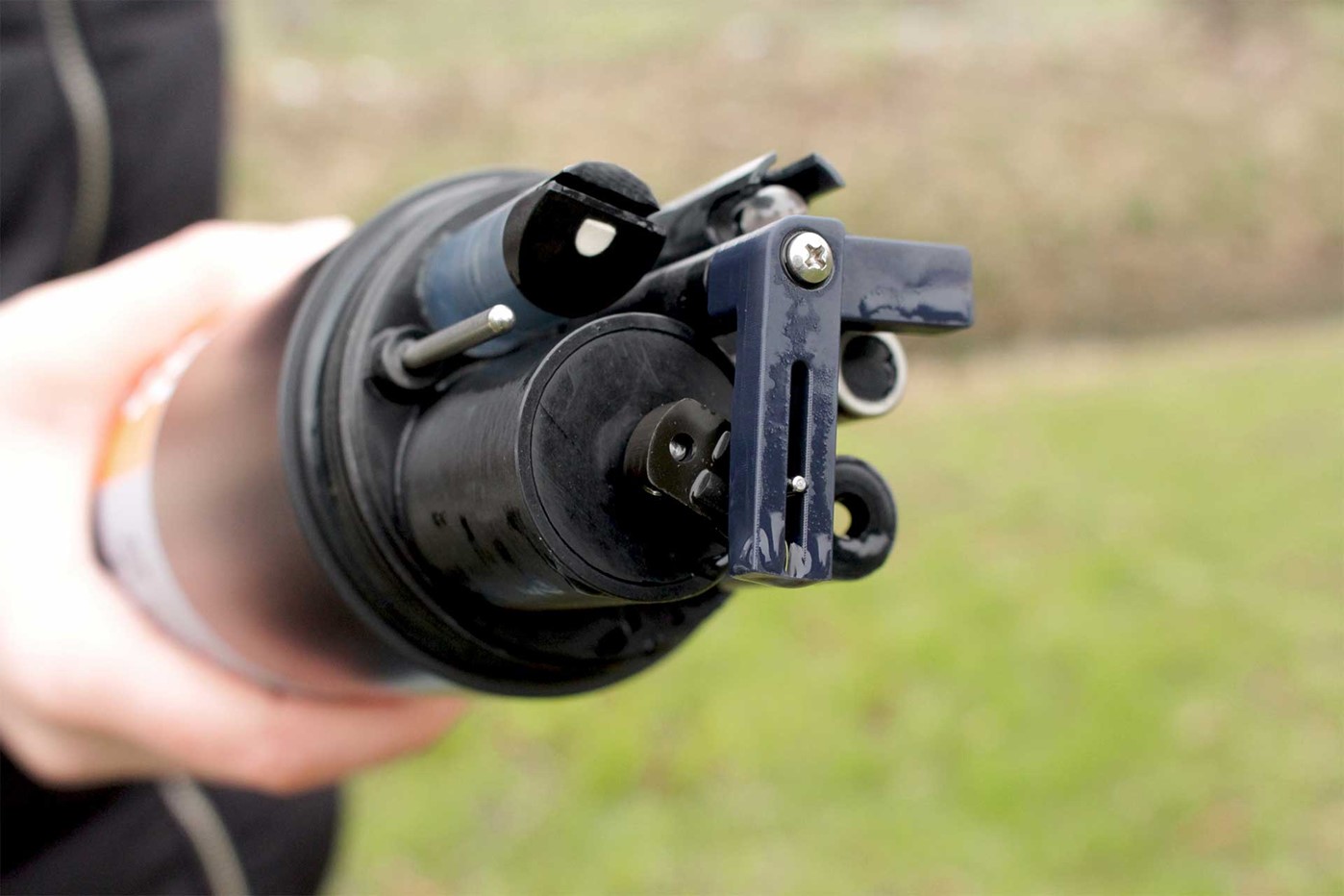
The Scuba water quality probes are suitable for various applications. They can be used for discrete sampling and profiling, or as self-powered loggers. Connect them to telemetry stations for continuous real-time monitoring and have your water quality data accessible directly via cloud-based software. The Scuba probes can communicate via RS-232, SDI-12 or Modbus.
View productsThe Scuba probes are highly customisable to meet your needs. Choose your parameters to measure to select the right the sensor for your applications. You can even add a battery pack to turn your field sensor into a monitoring device for several weeks or months.
| The water quality parameters that our probes can measure include: |
| Temperature | Chlorophyll, blue-green algae, PAR |
| Acidity (pH) | Crude oil, refined oil |
| Dissolved Oxygen (DO) | CDOM/FDOM, tryptophan |
| Electrical Conductivity (EC) | Fluorescein dye, rhodamine |
| Oxidation Reduction Potential (ORP) | Dissolved CO2 |
| Depth | Optical brighteners |
| Turbidity | Ammonium |
| Nitrate | Chloride |
| Sodium | Calcium |
| Bromide |

The Scuba range is equipped with features that ensure carefree use under various circumstances. Optional copper gauze slowly dissolves in water, bathing the sensors with copper ions that prevent biofouling. Additionally, the larger probe models (Scuba 75, 90 and 105) feature a wiper system to keep your sensors clean.
The Scuba probes are low in maintenance costs, partly because the reference sensor is separate which reduces the need for consumables. The optional copper gauze, and wiper in the larger Scuba probes, also help reduce the frequency for necessary maintenance. Depending on the fouling capacity of the water it is placed in, a Scuba can function with maintenance intervals of at least a month or even longer.
Storing and transporting water samples in bottles can change the pH (acidity), EC (electric conductivity) and O2 (dissolved oxygen) of the sample, leading to inaccurate measurements. Pumping samples up to the surface and storing in the bottle can raise oxygen levels, while settlement of hydroxides influences EC. Analysis in the field is therefore, in most cases, preferable.


If the regular Scuba probes are too advanced and expensive for your requirements, you can opt for the simplified and more budget-friendly Easy Scubas.